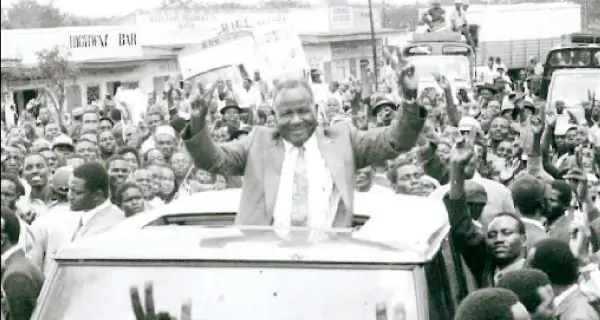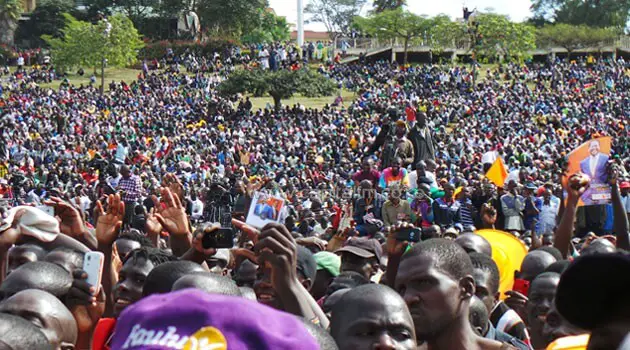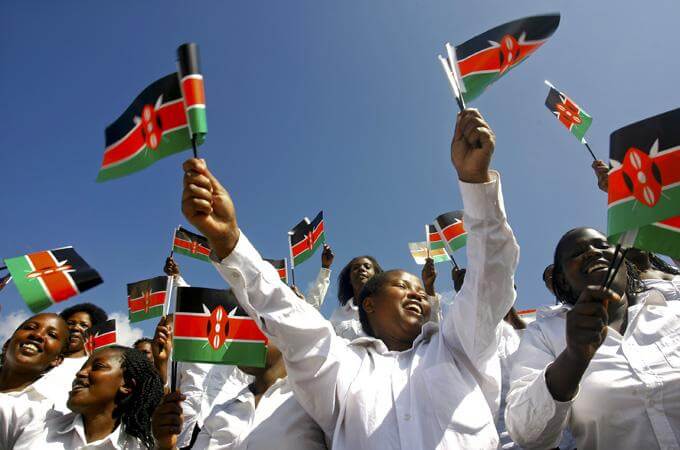Kenya stands proudly as a flourishing democracy in the vibrant continent of Africa.
With a rich history of political reforms and a commitment to democratic principles, Kenya has made significant strides in establishing a system that upholds the rights and voices of its citizens.
In this post, I will explore the essence of Kenya’s democratic fabric, exploring its evolution, fundamental characteristics, and the driving forces that have propelled its democratic spirit forward.
Let’s roll…
What Type of Democracy Does Kenya Have?
Kenya practices a representative democracy, which is characterized by the following guiding principles:
- The sovereignty of the people: The power ultimately lies with the citizens, who can choose their leaders and hold them accountable.
- Popular participation: Citizens actively engage in the political process through direct participation or by expressing their views through elected representatives.
- The rule of law: The law is supreme and applies to all individuals, ensuring equal treatment and that no one is above the law.
- Separation of powers: The powers of government are divided among three branches—the executive, legislative, and judicial—to prevent concentration of power and maintain checks and balances.
- Respect for human rights: Every citizen is entitled to the same rights and protections, irrespective of status.
In Kenya’s representative democracy, citizens elect representatives through fair and transparent elections.
These representatives make decisions on behalf of the people and are held accountable for their actions.
History of Democracy in Kenya

The journey toward democracy in Kenya has been fascinating, marked by significant milestones and challenges.
Prior to gaining independence from British colonial rule in 1963, Kenya experienced a period of political struggle and resistance against oppressive systems.
After independence, Kenya adopted a parliamentary system of government, with multiparty democracy being practiced until 1969.
However, in 1982, a constitutional amendment transformed Kenya into a one-party state, limiting political pluralism and stifling democratic freedoms.
The winds of change blew in the 1990s as demands for political reforms and democratization grew stronger.
When Kenya Become a Democratic Country
Kenya transitioned to a democratic country in 1992 when the ban on multiparty politics was lifted.
The country held its first multiparty elections, although KANU emerged as the winner despite substantial gains from opposition parties.
Nonetheless, this election was a pivotal milestone for democracy in Kenya.
Following the election, political instability unfolded as power struggles ensued between KANU and the opposition parties.
Despite the challenges, the democratic process persevered, ultimately culminating in the election of Mwai Kibaki as president in 2002.
Kibaki led the National Rainbow Coalition (NARC), and his victory represented a significant stride for democracy in Kenya.
The transition to democracy in Kenya, starting with lifting the ban on multiparty politics, marked a transformative period in the nation’s history.
Although there were obstacles and political turbulence along the way, the commitment to democratic principles prevailed, paving the way for a new era of governance and inspiring hope for the Kenyan people.
The Father of Democracy In Kenya

The concept of democracy in Kenya cannot be attributed to a single founder.
The establishment and development of democracy in Kenya resulted from the collective efforts of various individuals and groups who fought for political reforms and advocated for democratic principles.
During Kenya’s struggle for independence, prominent leaders such as Jomo Kenyatta played a significant role in shaping the country’s political landscape.
However, the journey toward democracy in Kenya saw the emergence of influential figures such as Jaramogi Oginga Odinga, Kenneth Matiba, and Raila Odinga, who made invaluable contributions.
Jaramogi Oginga Odinga, a prominent politician, and statesman, played a pivotal role in Kenya’s early political landscape.
As the first Vice President of independent Kenya, he championed democratic principles and advocated for political reforms.
His unwavering commitment to democracy and involvement in forming opposition parties left an indelible mark on Kenya’s political history.
Kenneth Matiba, a respected businessman and politician, played a crucial role in Kenya’s democratic struggle.
He staunchly advocated for political pluralism and multiparty democracy, forming the Forum for the Restoration of Democracy (FORD) party.
Matiba’s resilience and sacrifice in the face of political persecution became emblematic of the fight for democratic rights in Kenya.
Raila Odinga, a prominent opposition leader and former Prime Minister of Kenya, has been a prominent figure in Kenya’s democratic landscape.
He has played a significant role in shaping the political discourse and has been a vocal advocate for democratic reforms.
Odinga’s unwavering commitment to democratic ideals and leadership in opposition parties have contributed to Kenya’s ongoing democratic progress.
While these leaders have made substantial contributions to Kenya’s democratic journey, it is important to recognize that the establishment and development of democracy have been the collective efforts of numerous activists, politicians, civil society organizations, and the Kenyan people.
Challenges of Democracy in Kenya
Despite significant strides in its democratic journey, Kenya faces various challenges to a mature and thriving democracy.
These challenges stem from a complex historical, social, and political interplay.
One major challenge is corruption, which undermines democratic institutions, erodes public trust and hampers socioeconomic development.
Efforts to combat corruption have been ongoing, but more needs to be done to strengthen transparency and accountability and ensure the effective implementation of anti-corruption measures.
Ethnic divisions pose another significant challenge to Kenya’s democracy.
Deep-rooted ethnic tensions can lead to political polarization and violence and hinder the establishment of inclusive political processes.
Addressing these divisions requires fostering national unity, promoting interethnic dialogue, and ensuring equal representation and participation of all Kenyan communities in the democratic system.
Additionally, the integrity of electoral processes remains a critical challenge.
Instances of electoral disputes, allegations of voter manipulation, and inadequate mechanisms for resolving electoral conflicts undermine public confidence in the democratic process.
Strengthening electoral institutions, enhancing transparency in the electoral cycle, and promoting a culture of peaceful and credible elections are vital for consolidating democracy in Kenya.
You may also want to check:

